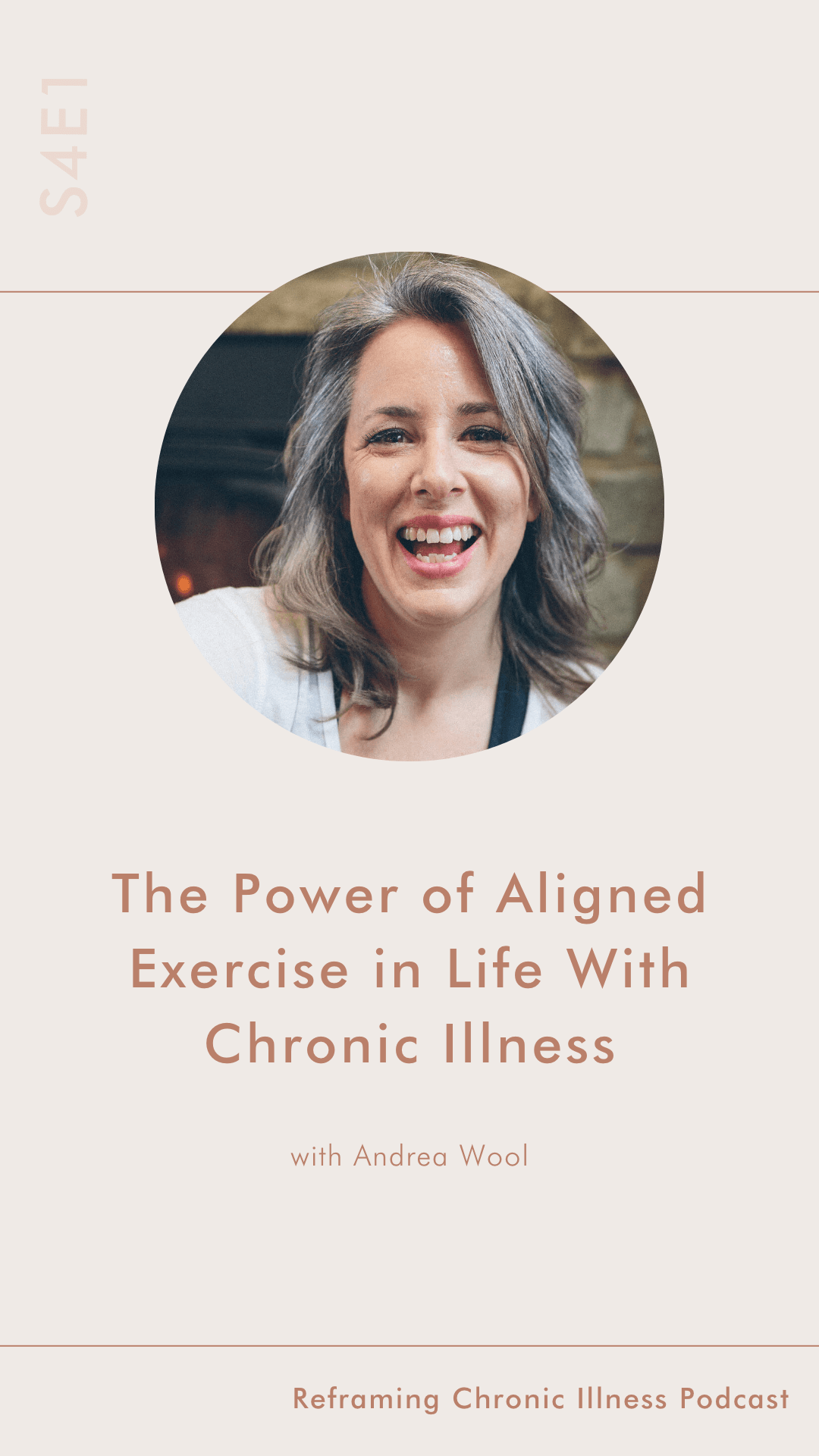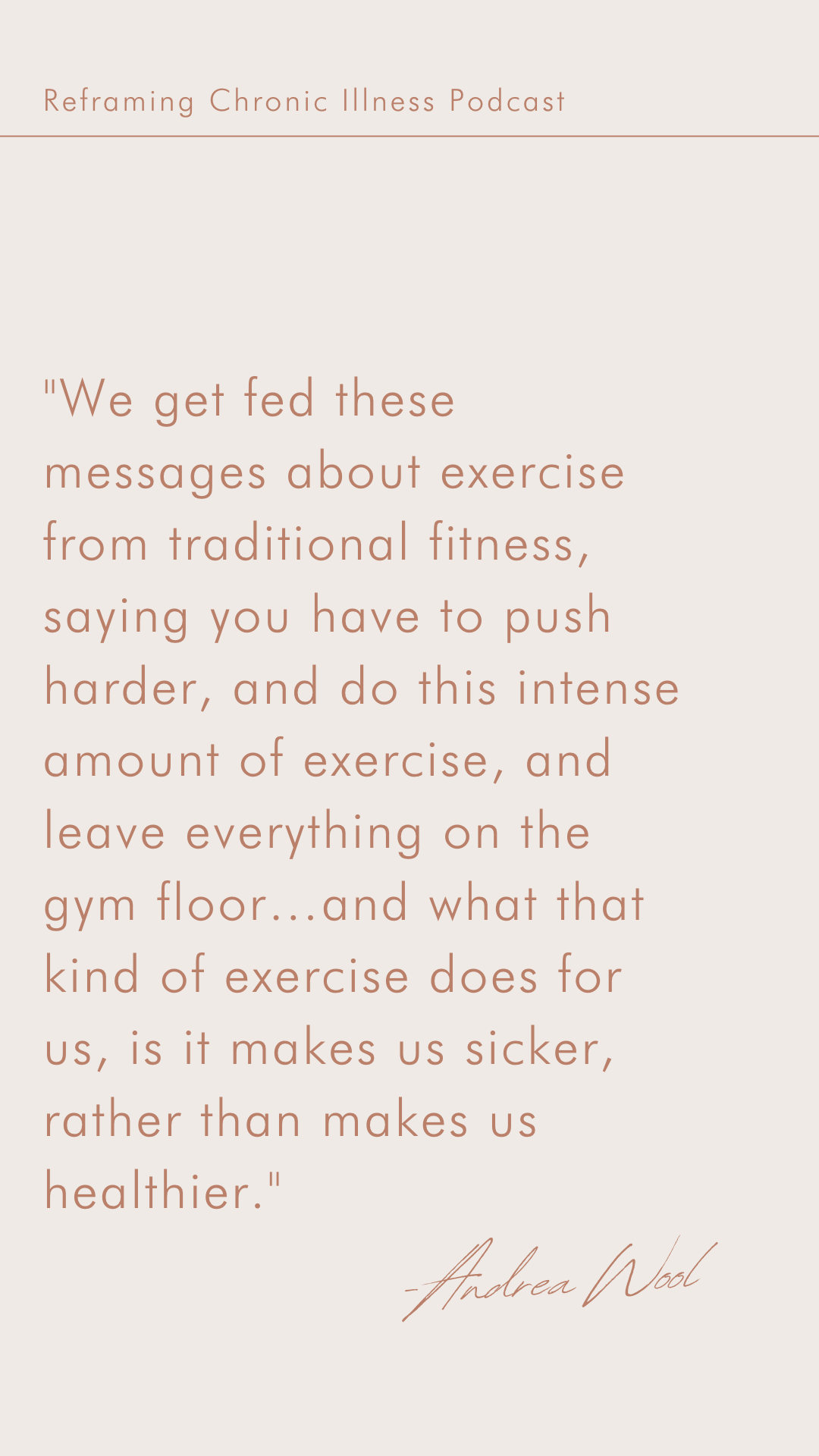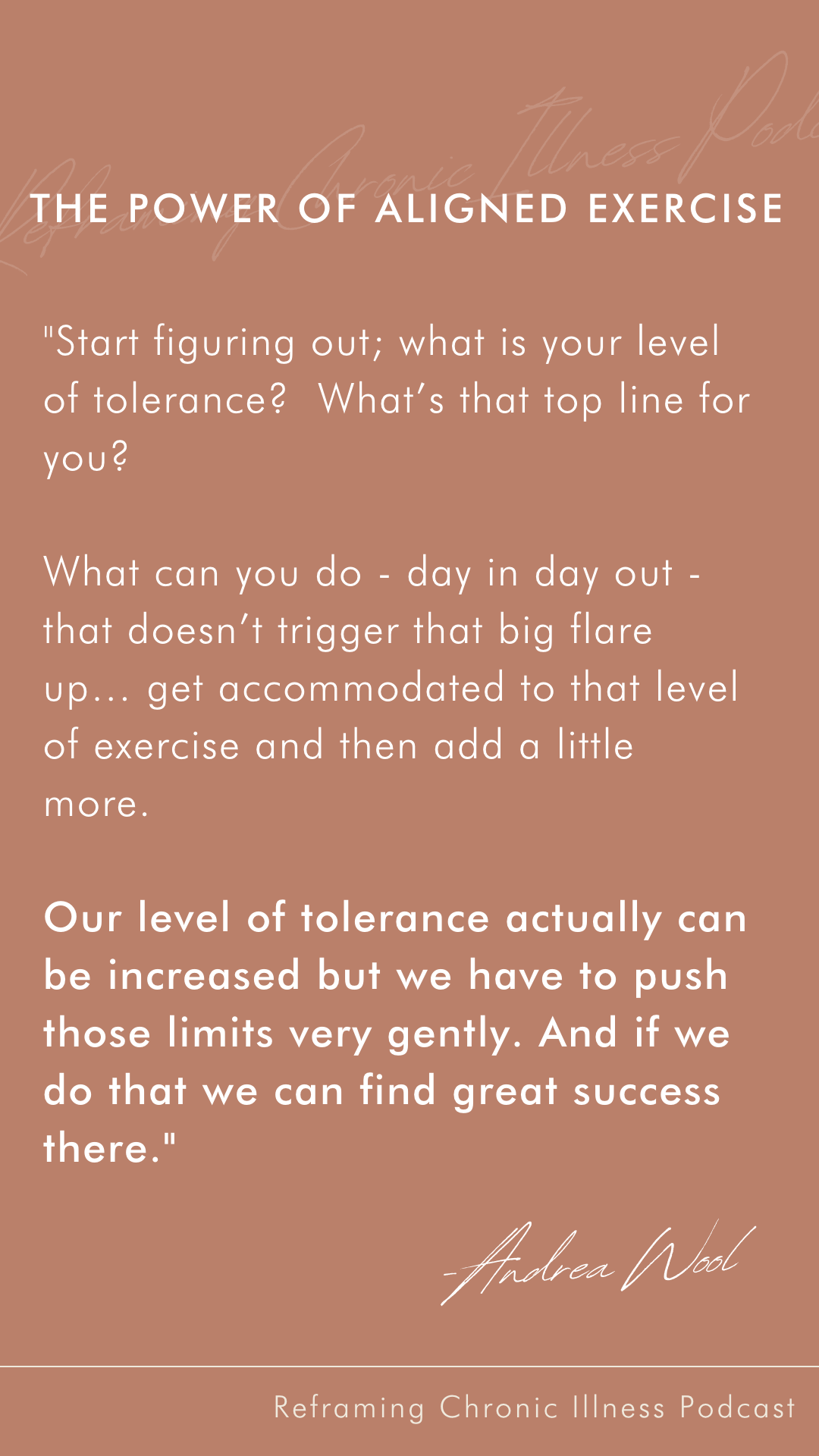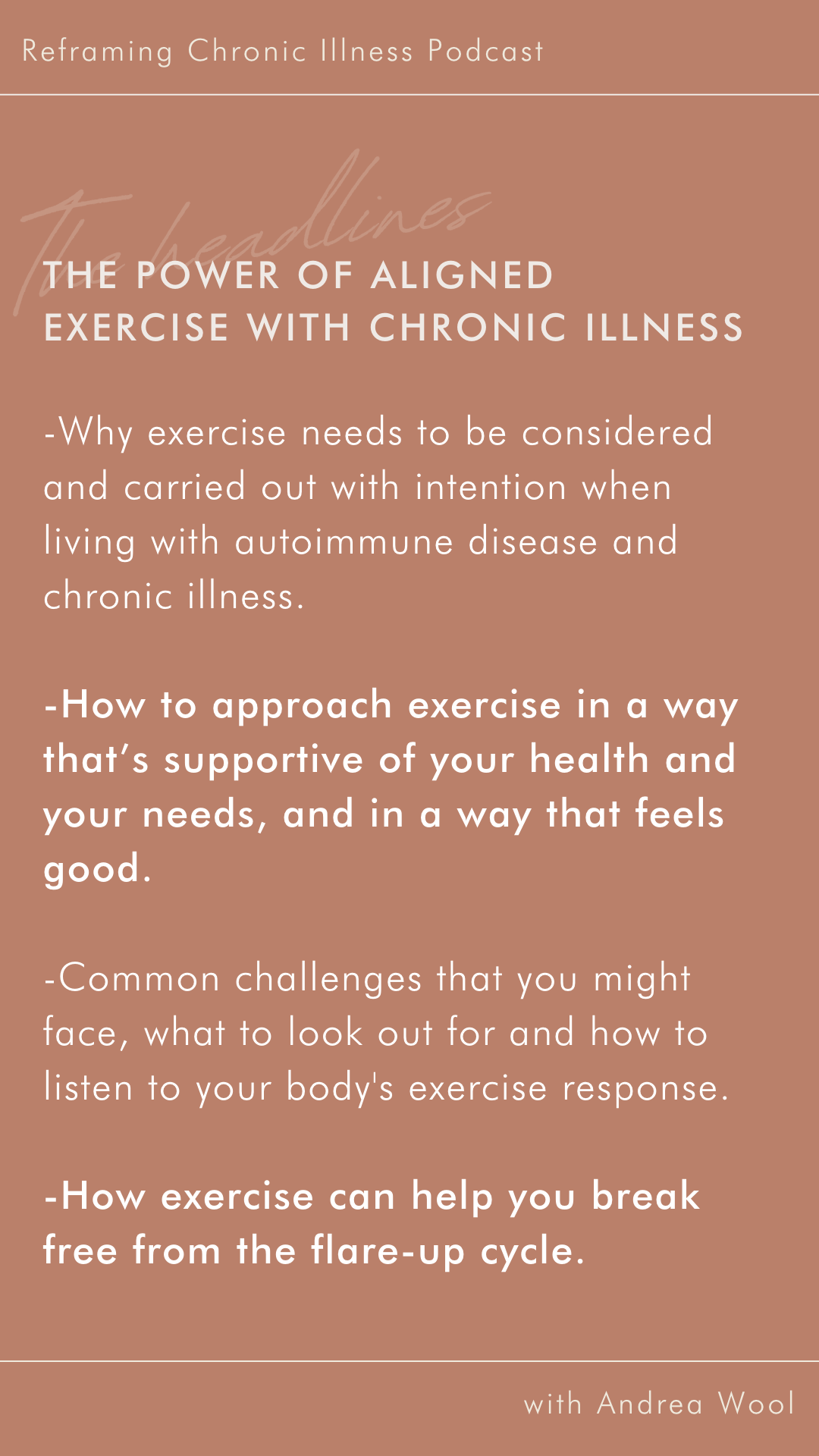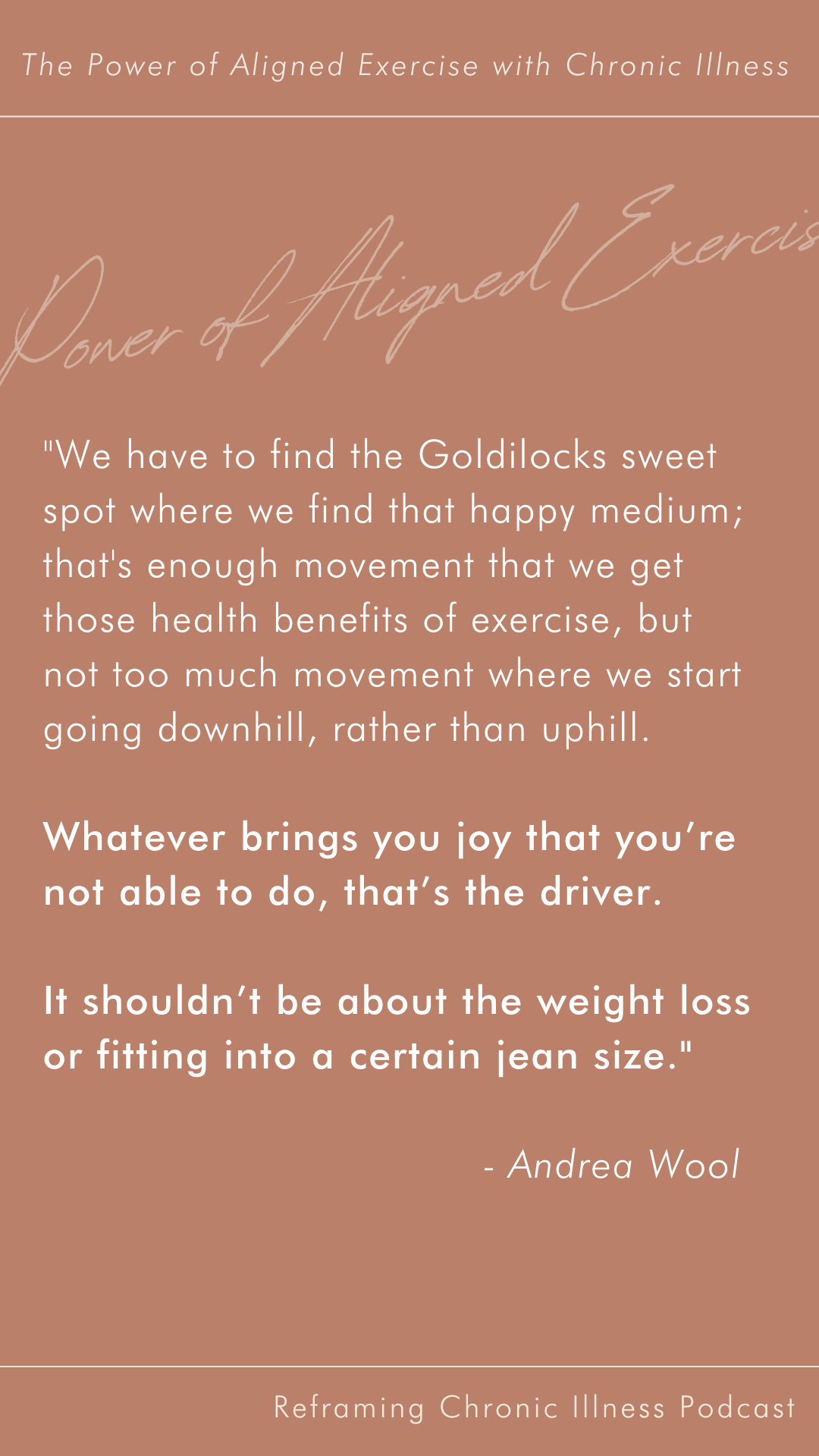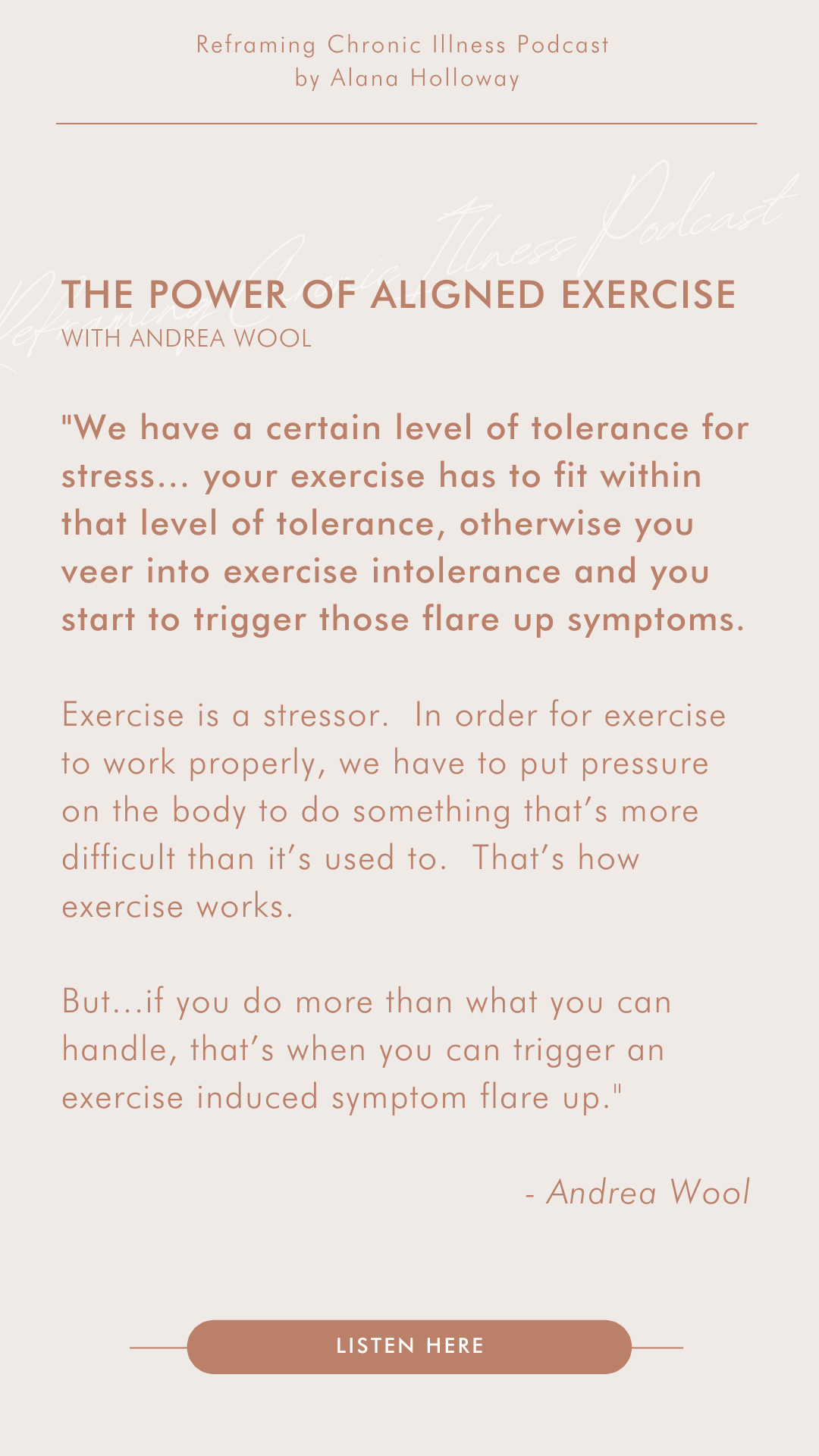S4E1: The Power of Aligned Exercise in Life With Chronic Illness and Autoimmune Disease, With Andrea Wool
We all know exercise is good for us, but have you ever felt that actually, something about the way you’re exercising and moving your body isn’t feeling good for you?
The whole premise behind exercise is that it’s a stress that we put on our bodies, and it’s that stress and consequent recovery that goes on to build strength and fitness.
But in a body where chronic illness or auto immune disease exists, stress, in the very broad and multi-layered sense of the term, is something that’s already very present, both as a pre-cursor to illness and disease, and as a result of it.
So what does that say for the way we move our bodies and exercise, and how can we make sure that we’re not overloading our systems, triggering flares or deeper or more recurrent illness, and how can we, in fact, do it in a way that feels good and supports our body’s ability to heal?
Today I’m speaking with Andrea Wool, personal trainer and founder of Autoimmune Strong; the first exercise program designed specifically for people living with autoimmune disease. Her exercise program has now supported thousands of people who love learning how to exercise safely, effectively and in a way that makes their body feel good.
LINKS:
Get Autoimmune Strong - Website
Get Autoimmune Strong - Instagram
MY LINKS:
Click here to sign up to the Your Chronic Illness Ally waitlist
Join the Reframing Chronic Illness newsletter here
EPISODE NOTES:
0:30 - Why is exercise in the content of chronic illness and auto immune disease even something that requires consideration beyond typical advice?
1:30 - Why traditional exercise needs nuance when it comes to implementing it into your life, how that differs for each person and how it can differ within your own body depending on where you are in your chronic illness cycle.
4:30 - What might the first signs be that the exercise you’re doing isn’t working for you and your body?
5:00 - Symptom flare-ups and exercise intolerance
7:00 - Exercise is a stressor by nature and how that influences the way we do it in a way that’s right for our bodies and out chronic illnesses or auto-immune conditions. What is your tolerance for stress and how to make sure your exercise fits within that level of tolerance. Exercise intolerance is a side-effect of auto-immune disease that very few people know about.
9:00 - The timeline of symptom flare-ups or exercise intolerance symptoms, and the role adrenaline plays in that. The ‘rest, recovery and do it again’ cycle.
11:00 - The role tracking and pattern identification and listening to your body plays in being able to determine what is and what isn’t working for you, your body and your chronic illness or autoimmune condition.
14:00 - Listening to your body; understanding what you’re doing and how that’s affecting you and then asking what your level of tolerance is, and what you can do repeatedly that is within that level of tolerance.
15:00 - Why it’s really important to understand that that first level of tolerance isn’t where you’ll be forever. Your exercise tolerance will increase the more you work within it and just gently nudge and stretch it along, which goes against the traditional fitness message of pushing your body way outside your boundaries in order to get fitter and stronger.
16:00 - ‘People pleasing’ in exercise and exercising to expectation; how to notice when you’re ‘performing’ in exercise because you might feel shame or embarrassment or not-enoughness, and what to do about it so it does’t become a huge barrier for you, or so that you don’t start exercising in a way that isn’t aligned.
20:00 - Choosing the right-for-you environment to exercise in.
21:30: Getting clear on your ‘why’ behind exercise and detaching yourself from the generic goals. How can you reframe what exercise means to you and see it as something that nourishes and supports your body. How exercise can help you get your spoons back.
24:45 - How can exercise help you get out of the flare-up cycle? And how the type of exercise you do affects that; what are the foundations of that? Moving away from ideas of what exercise ‘should’ look like.
32:00 - Using step count in the opposite way it was intended, to help you be more mindful of your energy and spoons, and using that to help you train for every day life.
38:15 - Advocating for yourself, having conversations outside of flares to talk about boundaries and expectations and not attacking yourself to the societal definition of a ‘sick or ill person’.
40:30 - Redefining what healthy fitness is for you and communicating that with your close people so that they understand and can support you in that.
42:00 - How people living with chronic illness and autoimmune disease are leading the way in showing how we can all start listening to our bodies better, and doing what is aligned and feels good to do.
44:45 - Question to you: what have been your challenges and roadblocks to exercise? There is not only one way to exercise, finding the right way for you.
49:00 - Autoimmune Strong and the 14 day challenge - what it’s about and how it helps you in your journey to finding exercise that works for you.

